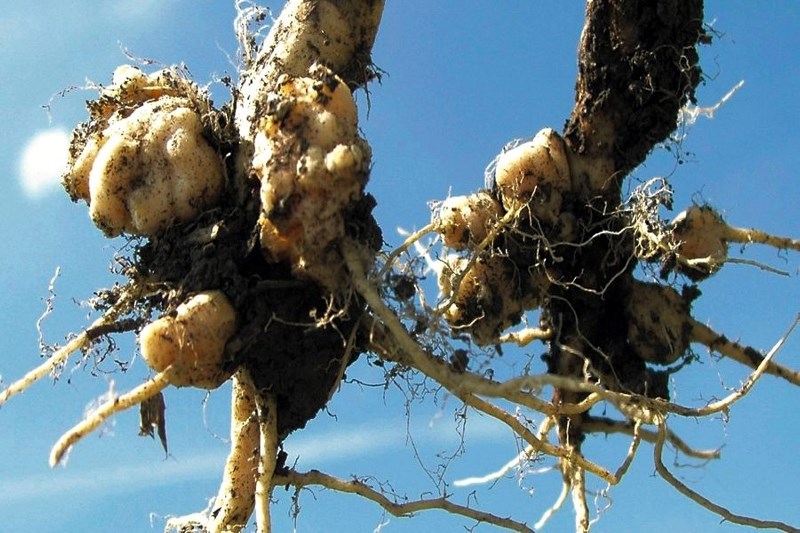Clubroot has once again made an appearance in the MD of Bonnyville, and it's not looking good.
The agriculture and waste services department at the MD of Bonnyville conducts an annual survey in search of the pesky crop infecting disease. So far this year, they have confirmed one new positive case of clubroot.
The farm is south of Glendon, near the border of the MD of Bonnyville and St. Paul County.
“It seems to be in the same area as the last bout. It's next to St. Paul County where they also have clubroot,” said Matt Janz, director of agriculture and waste services for the MD.
Out of the 300 fields inspected, they have two more that could still be deemed positive for the disease.
Clubroot is most commonly found in cruciferous crops. The disease is soil-borne and can cause swellings to form on the roots and even premature death of plant.
“We knew it was in the area. We put on workshops to try and reduce the chance of this spread. I think we're going to continue that,” Janz said.
In order to deter the disease, farmers use resistant variety seeds. However, in the one positive case of clubroot this year, the farmer wasn't using any of these varieties.
“In this one field, every plant that was pulled was infested with clubroot. That clubroot has been there for years. For every plant to have it, it's been a while,” described Janz.
In order to protect the farmer's identity, the MD does not release the name or the exact location of the property. Instead, they disclose the township it is in, so any farmers in the area can be wary of its presence.
MD Coun. Barry Kalinski believes the name and location of the farm should be disclosed.
“They (farmers) hate not knowing which quarter it is,” he said.
The farmer is not protected under the Freedom of Information and Public Privacy Act, however, it is the MD's common practice to keep it anonymous.
Because of the location of the property, Janz said it wouldn't take long for the farmers living within the township to find out the origin of the clubroot.
“These townships that we're finding it in now, it's going to be wide-spread within the next couple of years,” expressed Janz. “Most of the fields that we're going to find positive this year are within two or three sections of one-another.”
Once a field has been diagnosed with the disease, the MD puts a restriction on growing canola in that area.
“That's just to restrict the progress of clubroot,” Janz explained.
In order to protect local farmers, the MD hosts information sessions about clubroot and what farmers can do to protect their crops.
MD Reeve Ed Rondeau said, “I think the only way you're going to keep it controlled is through education.”



